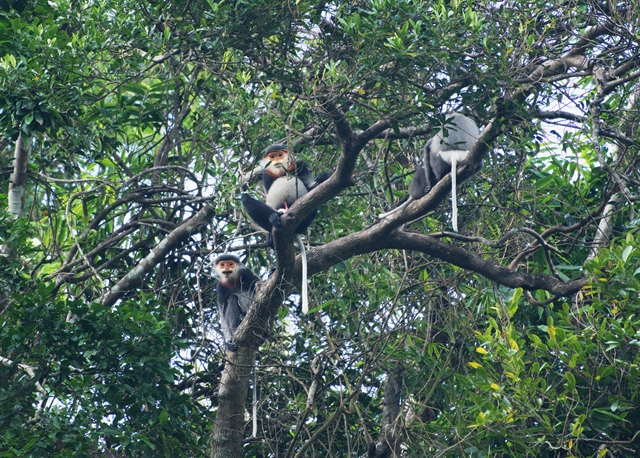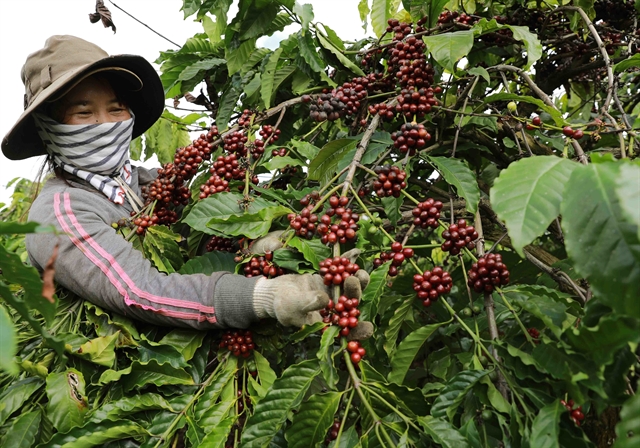 Environment
Environment

It is important for businesses to enhance green production, protect biodiversity and ecology, and strive for green labelling. These will be competitive advantages that help them compete with others to export agricultural or food products to the world.
 |
| A farmer in Đắk Nông Province harvests coffee. VNA/VNS Photo Vũ Sinh |
NINH BÌNH — A workshop on the role of corporate in biodiversity conservation was held on Friday in the northern province of Ninh Bình, highlighting the importance of sustainable trade of biodiversity products.
Nguyễn Lam Giang, director of the Center for Rural Economy Development (CRED), said the event aims at providing the business sector with a better understanding of biodiversity as well as encourage the private sector to ensure sustainable production and exploitation associated with the protection and restoration of ecosystems in the agricultural area.
“Businesses can participate and benefit when doing business in accordance with the principles of biodiversity conservation,” she said.
Tạ Thị Kiều Anh, a representative from the Department of Nature Conservation and Biodiversity, told the event about the role of corporates in the national biodiversity strategies and action plans.
They can participate in the conservation and sustainable use of biodiversity by developing non-timber forest products, engaging in sustainable trade of biodiversity products as well as developing circular economy and green economy, she said.
Nguyễn Thị Thu Liên, head of the Business Connection Department of the Association of Food Transparency, said businesses work directly with farmers and are those who leave an impact on the environment.
It is important for businesses to enhance green production, protect biodiversity and ecology, and strive for green labelling. These will be competitive advantages that help them compete with others to export agricultural or food products to the world.
“Businesses now must ensure both environment protection requirements and livelihoods for farmers. It is a challenge for them as meeting environmental protection requirements increases costs,” she said.
“Investing in long-term values may not be visible now, but will create lasting value and customer loyalty," Liên stressed.
Trần Văn Hiếu, director of the Development of Agricultural and Consultation for Environment Company (DACE), said the measures his company uses to ensure biodiversity such as crop rotation, intercropping, and enriching the soil with local microorganisms help improve productivity, reduce costs, and increase efficiency.
These activities bring not only benefits to the environment but also economic benefits to the company and farmers as well as meeting the requirements of the market, he said.
Hiếu pointed out many challenges, including working with local authorities to operate the model to ensure biodiversity and offering training on how to ensure biodiversity while still providing economic benefits for the local community.
He said looking for markets and selling products at reasonable prices for the markets are also a challenge.
Representatives from participating corporates also share their viewpoints on applying certifications such as UEBT (the Union for Ethical BioTrade), which certifies that ingredients from nature are sourced through systems that respect people and biodiversity.
The label stands for seven principles of ethical sourcing: sustainable use of biodiversity, conservation of diversity, fair and equitable sharing of benefits, socio-economic sustainability, compliance with legislation, clarity about land tenure and respect for the rights of actors.
According to Nguyễn Văn Long, from Sơn Hà spice and flavorings, UEBT certification helps corporates to improve their brand and prestige with customers, authorities, farmers and partners.
It also helps promote nature and biodiversity preservation as well as environmental protection and the production of high-quality products.
Hiếu said green labels help his company access more markets.
European, the UK, the US, Japan, South Korea, and emerging markets such as China are highly interested in biodiversity products, he said. — VNS




